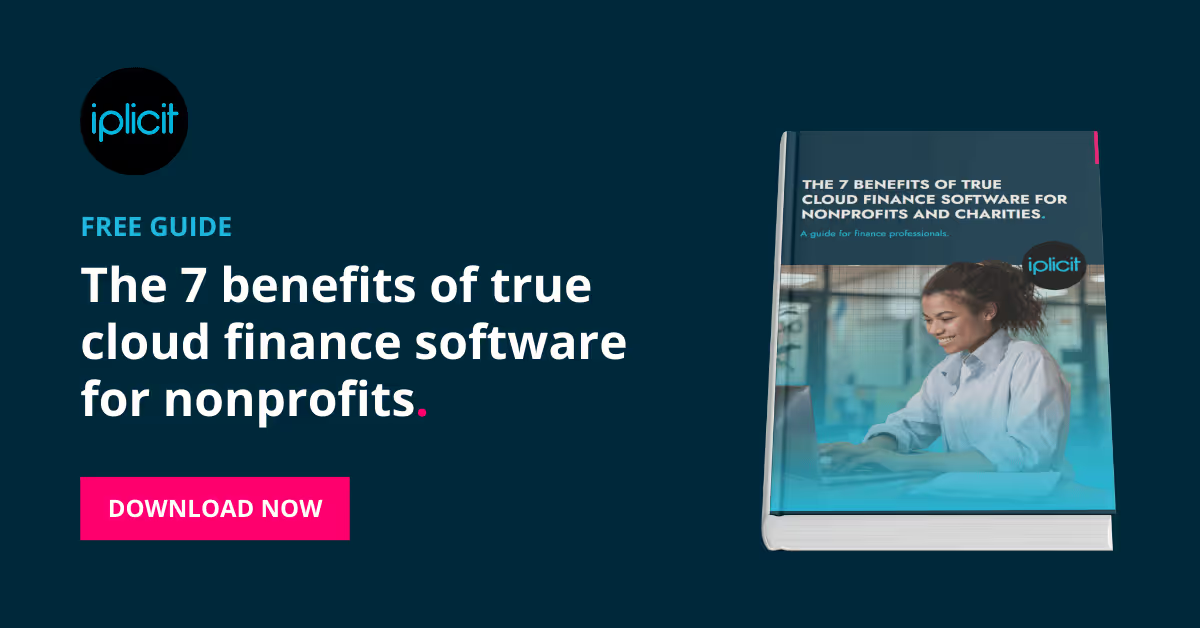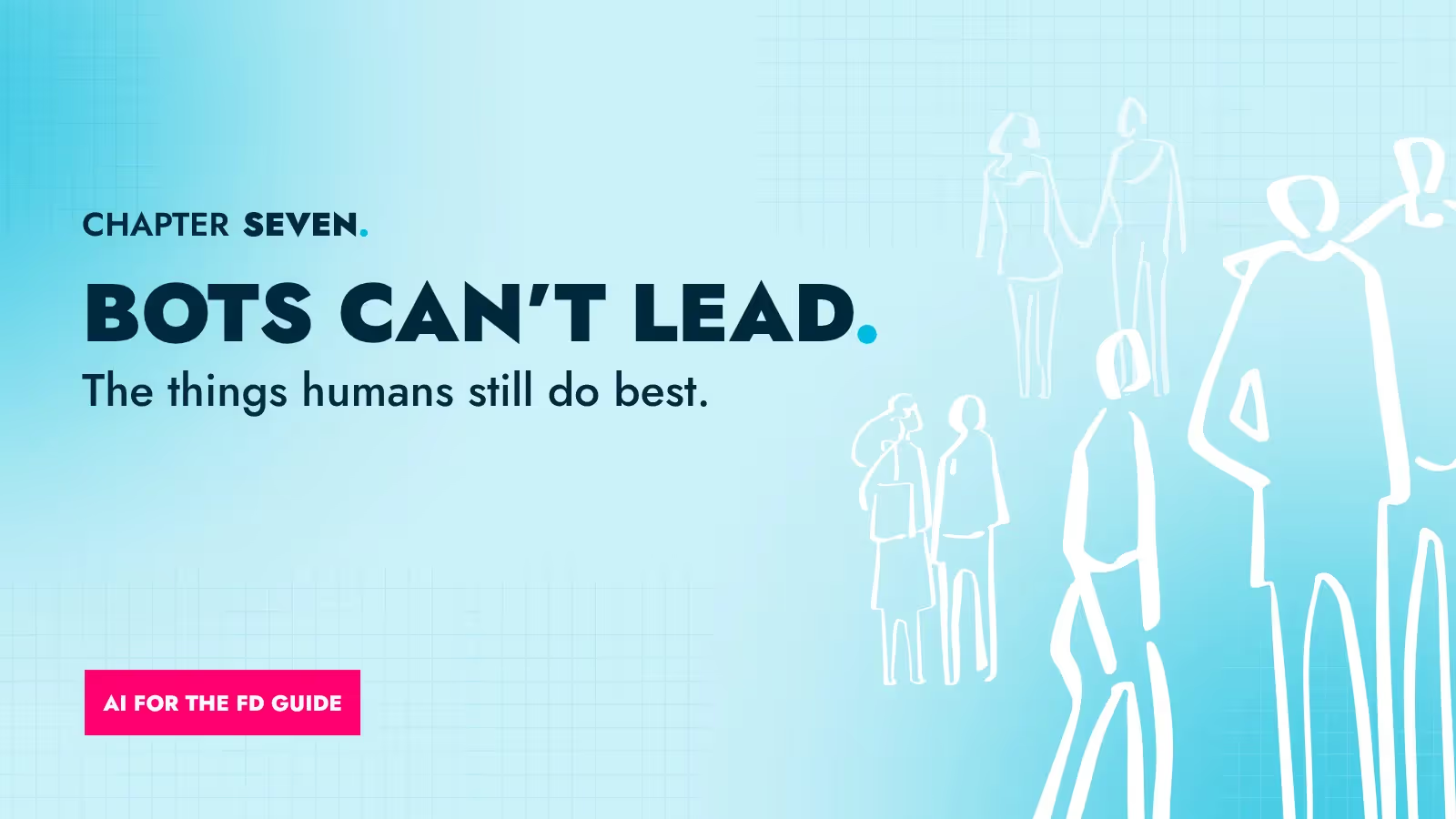AI novice to AI guru: Where are you on the learning curve?
Explore the current state of AI adoption in finance, uncover the gap between early adopters and cautious teams, and take a quick quiz to assess your own AI readiness and confidence.

📘Definitions #1
Artificial intelligence: The ability of machines to perform tasks that typically require human intelligence. Examples include understanding speech, recognising patterns, solving problems, learning from experience and making decisions. AI systems are designed to adapt and improve based on the data they process.
What we know
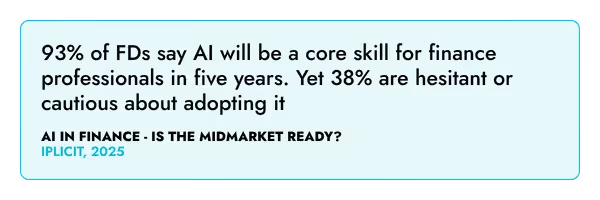
If you’re less than super-confident in your AI skills, you’re not alone.
It might seem everyone else has immersed themselves in artificial intelligence with the unshakeable bravado of a teenager on their Xbox. But research suggests the picture is more mixed.
We asked 250 finance decision makers in medium-sized organisations about the extent of their AI adoption.
While 83% had fully or partly adopted at least some AI technology, 38% described themselves as hesitant or cautious about adopting it. Only 53% had a formal policy or framework for the safe use of AI, while 58% were concerned about the security and compliance risks of adopting AI without clear governance.
And while 93% believed AI would become a core skill for finance professionals within five years, people were concerned about what it could mean for jobs. Half (51%) saw it as a threat to entry-level finance jobs, while 52% said it could become a threat to senior roles – including their own.
[CTA]
GET THE DETAIL: Want to know where your fellow FDs are with AI – and what time savings they’re seeing? Grab the full findings of iplicit’s research at iplicit.com [FULL URL TO COME]
‘There’s a hunger – but a lack of understanding’
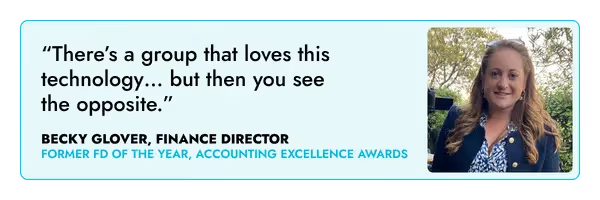
Our research points to a gulf between the people who are racing ahead with AI and those who’ve barely begun.
“My impression is there’s a group of people that love this technology, who are passionate about it and love playing around with it,” says Becky Glover, a former FD of the Year winner at the Accounting Excellence Awards.
“But then you see the opposite – the people who are very cautious, who are not sure if it’s a fad that will come and go. And those people are often not doing much to upskill themselves or their teams.”
There’s a similar gulf in the accounting profession.
Alastair Barlow, a former PwC accountant and business founder whose latest venture is the software business Numbrs, says: “I hang out with a group of early adopters in accounting, who tend to enjoy a challenge and like trying new technologies and sharing their experience. In that sample, 75% were using AI daily as of early 2025, with pretty much 100% using it at least weekly.
“In that bubble, it would be easy to get the impression that everybody in the world is using some form of AI every day. But among the 42,000 accounting firms in the UK, there will be a large proportion who don’t even use cloud technology for all their clients, so it’s unlikely they’ll have huge knowledge and experience of AI.”
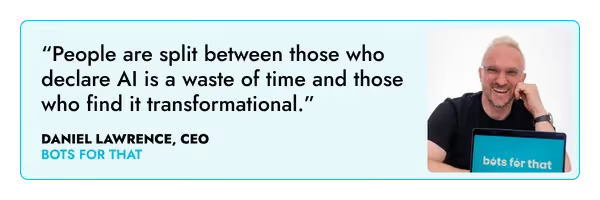
Daniel Lawrence, CEO of the accountancy automation business Bots For That, says: “We do our own State of Accounting Automation survey, which finds a massive hunger for it but also a lack of understanding.
“When people try it, we find they’re split between those who declare it’s rubbish and a waste of time and those who find it transformational. The people who really succeed with it are those who are attracted by a vision of what it could do, who accept it doesn’t quite deliver that vision but recognise that it maybe gets you a step closer – so they persevere.”
It might be tempting to leave this whole subject to the smart people who built your finance system. If AI has the potential to save you a lot of labour, won’t those features be added to your core accounting software soon enough?
The risk of taking that approach is that without some knowledge, you’ll struggle to evaluate your own vendor’s offer and whether any AI features are all that they’re claimed to be.
“There’s real value in learning about what AI can deliver,” says Paul Sparkes, iplicit’s Chief Product Officer.
“I would encourage people to take a similar approach to the one iplicit took when it ran an AI Curious project to get staff experimenting with AI and sharing their knowledge. The technology moves quickly, so I’d be cautious about pinning your colours to a particular mast just yet.”
‘Nobody has it fully figured out’

Ali Kokaz, Head of Data and AI at the leading growth equity firm One Peak, is a daily user of AI.
“Across the board, everyone is saying ‘We need to look at AI to make us more efficient’. But it’s moving so quickly that no one knows exactly where they are on this journey,” he says.
“I think the only commonalities are that everyone sees AI’s transformative potential, wants to use it and feels it is moving too rapidly for them to keep up. Yet no one knows where they really are on the journey. Nobody has this fully figured out.”
Wherever you are on the AI curve – personally or as an organisation – there’s an important reality to bear in mind. You’ll almost certainly have people on your team who are learning and experimenting. After all, ChatGPT brought this technology to the consumer in 2022, before most businesses had adopted it.
“You need to be cognisant of the fact that even if you’re not aware of your team using AI, they probably are,” says Olivia McMillan, Chief Operating Officer at iplicit.
“People are adopting these tools naturally, so it’s important that you’re supporting them and welcoming that, rather than stifling them. Getting some golden rules in place is important.”
If you’ve barely dipped a toe in Lake AI, you might be wondering what you can actually do with it.
In the next chapter, we’ll look at some real-world examples.
🧠 Take the AI IQ quiz
Latest guides
Want to see iplicit in action?
Book your demo and discover how iplicit can simplify your finance operations, automate manual processes, and give you real-time visibility - wherever you work.

